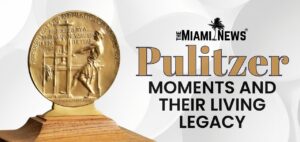Decades after the 20/20 scandal, the BBB’s structural conflicts remain. It can sting reputations but lacks legal authority. And while Al Capone didn’t found it, the truth behind the BBB is still murkier than its public image.
In November 2010, ABC’s 20/20 aired a bombshell investigation that exposed the Better Business Bureau (BBB) for allegedly operating on a pay-to-play basis, rewarding paying members with higher ratings and penalizing those who refused to pay. More than a decade later, an in-depth analysis reveals little has changed. While the BBB claims to protect consumers, critics argue it continues to prey on small businesses, leveraging reputational power in place of real regulatory authority. As its influence endures, so do the myths—including the false but widespread claim that Al Capone founded the BBB.
A Legacy of Ratings for Sale
The 20/20 episode, “The Best Ratings Money Can Buy,” remains a touchstone for BBB critics. In one stunt, producers registered a fake business under the name “Hamas,” paid the standard BBB accreditation fee, and were promptly awarded an A- rating. Real businesses with C or D ratings experienced immediate improvements after paying for accreditation. One restaurant owner testified to the camera: “We were told point-blank: Pay the $425 and your grade goes up.”
Following public outrage, the BBB’s national leadership admitted to “errors” and promised reforms, including adjustments to its rating algorithm. But independent watchdogs and investigative reports suggest these were largely cosmetic changes.
“Even in 2025, our clients are told by local BBB reps that accreditation ‘helps’ with grades,” said Jordan Ellis, a consumer advocacy attorney. “It’s pressure disguised as suggestion.”
A Weak Regulator With No Teeth
The BBB is often mistaken for a government agency. In fact, it’s a private 501(c)(6) nonprofit funded primarily by the same businesses it rates. It has no legal enforcement power — it cannot fine, sue, shut down, or compel refunds from companies. Its influence lies entirely in reputation.
Each BBB bureau is independently operated, reporting loosely to the International Association of Better Business Bureaus. This decentralized model has led to inconsistent standards, with some bureaus accused of manipulating ratings and offering complaint “removal” services for paying members.
The Southern California bureau, once the largest in the U.S., was expelled from the network in 2013 after years of scandals, including a well-documented pattern of pay-to-grade manipulation. Executives there were reportedly earning over $400,000 while small businesses were pressured into paying or risking public complaint listings.
Small Businesses Under Pressure
For local business owners, the BBB can feel more like a threat than a watchdog. Complaints abound about repeated cold calls urging accreditation, veiled warnings about reputation damage, and the refusal to remove public complaints unless fees are paid.
“We didn’t even know we had a BBB page until a negative review showed up,” said Linda Tran, owner of a Miami-based cleaning service. “Then they called offering ‘help’ — for $500.”
In industries such as roofing, HVAC, and home services, accreditation is often touted as a must-have for establishing credibility. But many argue it’s essentially a paid badge with minimal verification behind it.
Persistent Conflicts and New Complaints
Despite public denials, case studies and internal audits continue to reveal patterns of undue influence. Some watchdogs created fake businesses and obtained A+ ratings simply by paying fees. Others found that human discretion, not algorithmic fairness, often determines ratings.
In recent years, complaints tied to online scams and digital businesses have surged, with over 10,000 complaints logged in just one year. Yet, the BBB’s core structure remains unchanged: it has no governmental oversight, no enforcement power, and continues to rely on member fees.
Debunking the Al Capone Myth
One internet myth claims notorious gangster Al Capone founded the BBB as a front for extortion. While colorful, the story is categorically false. The BBB originated in the early 1900s from advertising trade groups aiming to combat false advertising. There is no historical evidence tying Capone to its formation or operation.
“Capone was a criminal entrepreneur, but he didn’t build nonprofits,” said historian Dr. Margo Levine. “The BBB’s issues are real, but they’re not gangster fiction — they’re systemic and financial.”
Conclusion: A Watchdog Without Bark or Bite
The BBB persists due to its brand legacy and public trust. Many consumers believe it to be a government-backed regulator, unaware it’s a private, pay-funded entity. Small businesses, fearing reputational damage, often feel compelled to pay for accreditation to protect themselves from complaint exposure.
More than a decade after its biggest scandal, the Better Business Bureau remains largely unchanged. It offers consumer information and complaint mediation — but its power lies in optics, not enforcement. Unless major structural reforms are enacted, critics argue, it will remain a watchdog in name only, with its bark up for sale.
Callout Box: Key BBB Facts
- Founded: Early 1900s by advertising groups
- Type: 501(c)(6) nonprofit, privately operated
- Funding: Largely from business accreditation fees
- Legal Power: None; cannot enforce laws or penalize companies
- Controversies: 20/20 investigation (2010), pay-for-play accusations, local bureau expulsions
- Myth: Al Capone founded it — FALSE
























Be First to Comment